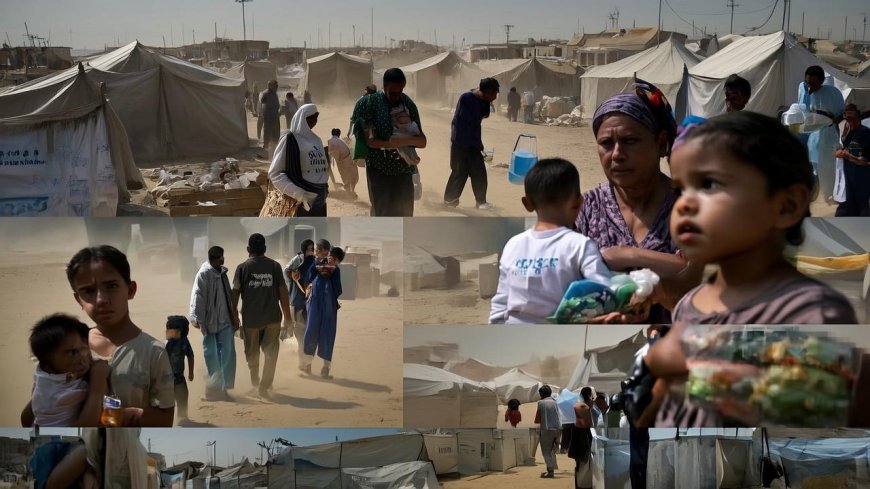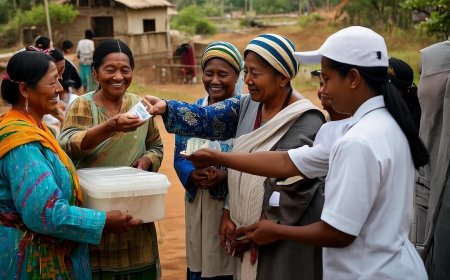Gaza Emergency Relief: Urgent Humanitarian Aid Needed
Without urgent emergency relief, the suffering will only worsen, leading to more deaths from preventable causes. The international community must act now to provide lifesaving aid to Gaza.

Gaza is facing one of the worst humanitarian crises in recent history. Ongoing conflict, blockades, and economic collapse have left millions of people struggling to survive. Families lack access to food, clean water, medical care, and shelter.
Hospitals are overwhelmed, schools are damaged, and basic infrastructure is crumbling. The situation is especially dire for children, the elderly, and those with chronic illnesses. Without urgent emergency relief, the suffering will only worsen, leading to more deaths from preventable causes. The international community must act now to provide lifesaving aid to Gaza.
Why Emergency Relief is Urgently Needed
The people of Gaza are living in extreme hardship. Many have been displaced from their homes due to bombings and destruction. Food shortages have led to malnutrition, especially among children. Clean water is scarce, increasing the risk of disease outbreaks.
Hospitals are running out of medicine, electricity, and functioning equipment. The healthcare system is near collapse, leaving injured and sick people without treatment. Emergency relief efforts must focus on delivering food, clean water, medical supplies, and shelter to prevent further suffering. Every day without aid puts more lives at risk.
Key Areas of Emergency Relief in Gaza
Emergency relief in Gaza must address multiple critical needs. Food aid is essential to prevent starvation, with many families relying on humanitarian organizations for meals. Clean water and sanitation supplies are needed to stop the spread of diseases like cholera.
Medical aid, including trauma kits, medicines, and mobile clinics, can save lives in a collapsing healthcare system. Shelter and blankets are necessary for displaced families living in damaged buildings or makeshift camps. Psychological support is also vital, as many people, especially children, suffer from trauma due to constant violence.
How International Organizations Are Responding
Several humanitarian organizations are working tirelessly to provide emergency relief in Gaza. The United Nations Relief and Works Agency (UNRWA) delivers food, medical care, and education support. The World Food Programme (WFP) supplies emergency food rations to families in need.
Doctors Without Borders (MSF) operates medical facilities and provides critical care. The Red Cross and Red Crescent Societies offer emergency medical services and distribute essential supplies. Despite their efforts, funding shortages and access restrictions limit their ability to help everyone. More support is needed to scale up these lifesaving operations.
How Donations Help Save Lives in Gaza
Donations are a lifeline for emergency relief efforts in Gaza. Financial contributions help buy food, water, and medical supplies. Funds also support the deployment of emergency teams and the repair of vital infrastructure.
In-kind donations, such as medical equipment and hygiene kits, directly assist those in need. Crowdfunding campaigns and charity drives raise awareness and gather resources quickly.
Transparent donation systems ensure aid reaches the right people. Even small contributions make a difference when combined with others, helping to feed families, treat the injured, and provide shelter.
How Individuals Can Support Gaza Emergency Relief
People around the world can help Gaza by taking action. Donating to trusted humanitarian organizations ensures aid reaches those in need. Sharing information on social media raises awareness and encourages others to contribute.
Volunteering with relief organizations or advocating for political solutions can also make an impact. Some individuals organize local fundraisers or supply drives to support Gaza. Every effort, no matter how small, helps save lives and brings hope to those suffering in this crisis.
Challenges in Delivering Aid to Gaza
Despite urgent needs, delivering aid to Gaza faces major obstacles. Blockades and restrictions limit the flow of essential supplies. Damaged roads and infrastructure make transportation difficult. Security risks hinder the work of humanitarian teams.
Bureaucratic delays and funding shortages slow down relief operations. Overcoming these challenges requires international pressure to ensure aid can enter Gaza without restrictions. Governments, NGOs, and activists must work together to remove barriers and speed up emergency relief.
The Future of Gaza: Long-Term Recovery Needs
While emergency relief is critical now, long-term recovery is also essential. Rebuilding homes, hospitals, and schools will take years of sustained effort. Economic recovery programs must create jobs and restore livelihoods.
Mental health support will be needed for generations affected by trauma. International aid must shift from short-term relief to sustainable development. Peace and stability are the ultimate goals, ensuring that Gazas people can finally live in safety and dignity.
FAQs
1. Why is emergency relief needed in Gaza?
Gaza is experiencing severe shortages of food, water, medicine, and shelter due to conflict and economic collapse. Without immediate aid, many more lives will be lost to starvation, disease, and lack of medical care.
2. Which organizations are providing aid to Gaza?
UNRWA, WFP, Doctors Without Borders, Red Cross, and other NGOs are delivering food, medical care, and shelter. However, they need more funding and access to help everyone in need.
3. How can I donate to Gaza relief efforts?
You can donate through verified organizations like UNRWA, WFP, or Doctors Without Borders. Always check the charitys credibility before donating.
4. Is it safe to send aid to Gaza?
Aid delivery faces challenges due to blockades and restrictions, but humanitarian groups work to ensure supplies reach those in need. Supporting trusted organizations increases the chances of aid getting through.
5. What are the biggest needs in Gaza right now?
The most urgent needs are food, clean water, medical supplies, and shelter. Long-term needs include rebuilding infrastructure and providing mental health support.
6. Can individuals volunteer to help Gaza?
Some organizations accept volunteers for fundraising, advocacy, or medical missions. Check with NGOs like Doctors Without Borders or the Red Cross for opportunities.
7. How else can I help besides donating?
You can raise awareness on social media, contact political representatives to demand action, or organize local fundraisers to support Gaza relief efforts.
Conclusion:
Gazas humanitarian crisis requires immediate and sustained action. Emergency relief saves lives by providing food, medicine, and shelter to those in desperate need. While international organizations are working hard, more support is crucial to meet the overwhelming demand. Donations, advocacy, and awareness can make a real difference. The people of Gaza cannot waitevery effort counts in alleviating their suffering and helping them rebuild their lives.





























